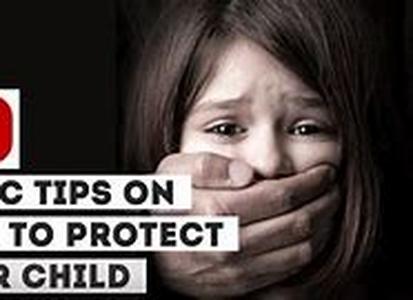
Parents Often Remind Their Kids Not To Fill Out Forms On Sites That Ask For Vital Personal Information Such As Name, Address, Email Address, And Telephone Number. But, Parents Are Often Underpowered By The Desire Of Their Kids And The Smart Tactics Of Some Sites. The Problem Is, Parents Often Fail To Teach Their Kids How To Respond So That Their Personal Information Isn't Disclosed. If You Are One Of Them, Then You Need Help. Here's How To Teach Your Kids The Proper Way To Respond To Sites Asking For Personal Information That Would Definitely Keep Their Privacy At The Same Time While Enabling Them To Still Use The Site. If The Site Asks For The Real NameUse A Handle Or An Alias.If The Site Asks For The AddressIf The Site Only Requires Your Town And State, Then It Is Probably Safe. But If The Site Asks For A Complete Address Including The House Number, Teach Your Kids To Ask You First Before Filling This Space Out. If The Site Asks For The Email AddressIf This Field Is Required, Then Teach Your Kids To Create A Separate Email Account For This Purpose. In This Way, Their Primary Email Won't Receive Junk Mails From Unknown Senders. If The Site Asks For The Telephone NumberIf The Completion Of The Form Is Only To Grant Access To Online Games, Then The Number Is Completely Unnecessary. But If The Site Needs The Number To Send A Verification Code Or Access Code Through Text Message, Then A Cell Phone Number That Isn't Registered May Be The Safest Way To Give. But Still, You May Want To Tell Your Kids To Approach You First On This Issue.Sites Have No Capacity To Know If The Information That Your Kids Have Given Are True Or Not, Unless Of Course If Your Kids Input Their Credit Card Number. So If The Site Asks For This Kind Of Information, Teach Them To Consult You First Or Better, Click The Back Button And Ignore The Site Entirely If The Information Asked Has No Relation To The Service Your Kids Want With The Site. What Is Important Is To Fill Up Those Required Fields On The Form. Bottom Line Is, The Website Can't Verify If The Information Given By A User Is True Or Not. They Only Rely On The Information Given To Them. And If The Sites Are Clever Enough, Then You Teach Your Kids To Think Ahead In Order To Make Sure That Their Privacy Isn't Revealed. So, The Secret To Keeping Your Kids' Privacy Is Teaching Them Common Sense By Knowing If The Site Is Fooling Them Or Not And By Not Revealing Something That Threatens To Violate Their Privacy.





